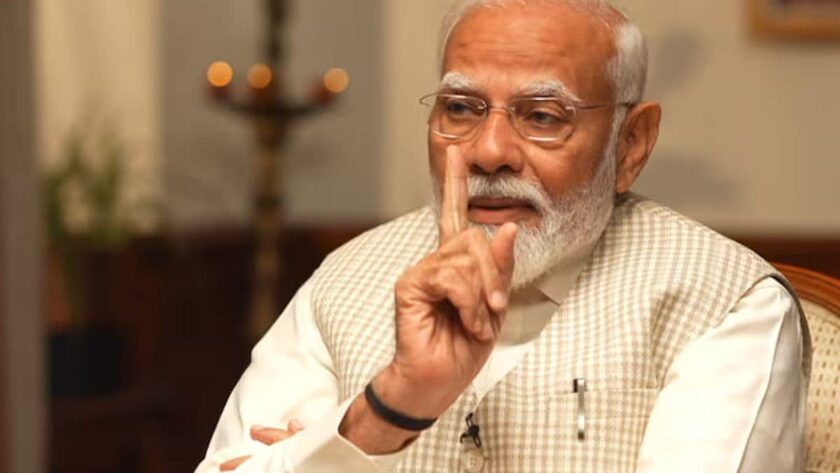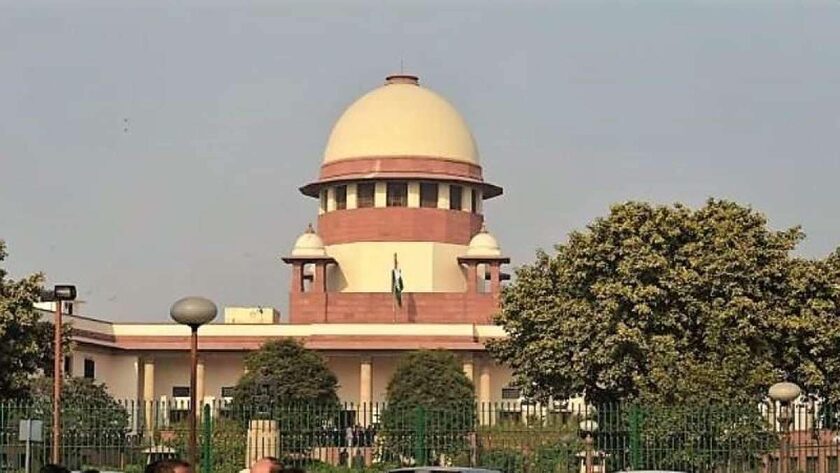Marital Rape: A Legal Quandary Unraveled
In a recent judgment that sent shockwaves across legal circles, the Madhya Pradesh High Court made a pivotal ruling regarding marital rape, igniting a debate on the nuances of consent and conjugal rights.
Deciphering the Verdict: What the Ruling Means
In a nutshell, the judgment pronounced by Justice GS Ahluwalia stirred controversy by asserting that “unnatural” sex with one’s wife does not constitute rape under the Indian Penal Code (IPC). The ruling, which pertained to an FIR filed against a husband by his estranged wife under IPC sections 377 (unnatural sex) and 506 (criminal intimidation), raised eyebrows for its stance on marital rape.
The Legal Landscape: Section 377 and Beyond
The term “unnatural sex” under Section 377 of the IPC traditionally encompassed acts deemed contrary to the order of nature, including anal and oral sex, irrespective of consent. However, a seismic shift occurred in September 2018 when the Supreme Court partially struck down Section 377, decriminalizing consensual sexual activities between adults, regardless of their nature. This watershed moment, epitomized by the Navtej Singh Johar v. Union of India case, heralded a more progressive approach to sexual relationships in India.
Marital Rape: A Thorny Issue
The contentious issue of marital rape, defined as non-consensual sexual intercourse imposed by a husband upon his wife, has long been a flashpoint in legal discourse. Despite evolving attitudes and legal frameworks worldwide, marital rape was historically not recognized as a criminal offense in many jurisdictions. However, a paradigm shift occurred in September 2022 when the Supreme Court of India acknowledged marital rape, albeit in the context of abortion, in a landmark ruling. This groundbreaking decision underscored the imperative of safeguarding women’s bodily autonomy and right to consent within marital unions.
Legal Ambiguity: A Roadblock to Justice
The recent judgment by the Madhya Pradesh High Court underscores the persisting legal ambiguity surrounding marital rape. While Section 375 of the IPC defines rape as any non-consensual sexual intercourse, Exception 2 to Section 375 creates a contentious exemption for sexual acts between spouses over the age of 15. Consequently, acts of sexual violence perpetrated by husbands against their wives often evade legal scrutiny, perpetuating a culture of impunity.
Towards Clarity: The Need for Legal Reform
The Madhya Pradesh High Court’s ruling underscores the urgent need for legal reform to address the glaring gaps in India’s legal framework concerning marital rape. As societal norms evolve and the discourse on consent and sexual autonomy gains momentum, it is imperative for lawmakers to enact legislation that unequivocally criminalizes marital rape and affirms the fundamental rights of married individuals.
Final Thoughts: Navigating the Complexities of Consent
Marital Rape: A Legal Quandary Unraveled
In a recent judgment that sent shockwaves across legal circles, the Madhya Pradesh High Court made a pivotal ruling regarding marital rape, igniting a debate on the nuances of consent and conjugal rights.
Deciphering the Verdict: What the Ruling Means
In a nutshell, the judgment pronounced by Justice GS Ahluwalia stirred controversy by asserting that “unnatural” sex with one’s wife does not constitute rape under the Indian Penal Code (IPC). The ruling, which pertained to an FIR filed against a husband by his estranged wife under IPC sections 377 (unnatural sex) and 506 (criminal intimidation), raised eyebrows for its stance on marital rape.
The Legal Landscape: Section 377 and Beyond
The term “unnatural sex” under Section 377 of the IPC traditionally encompassed acts deemed contrary to the order of nature, including anal and oral sex, irrespective of consent. However, a seismic shift occurred in September 2018 when the Supreme Court partially struck down Section 377, decriminalizing consensual sexual activities between adults, regardless of their nature. This watershed moment, epitomized by the Navtej Singh Johar v. Union of India case, heralded a more progressive approach to sexual relationships in India.
Marital Rape: A Thorny Issue
The contentious issue of marital rape, defined as non-consensual sexual intercourse imposed by a husband upon his wife, has long been a flashpoint in legal discourse. Despite evolving attitudes and legal frameworks worldwide, marital rape was historically not recognized as a criminal offense in many jurisdictions. However, a paradigm shift occurred in September 2022 when the Supreme Court of India acknowledged marital rape, albeit in the context of abortion, in a landmark ruling. This groundbreaking decision underscored the imperative of safeguarding women’s bodily autonomy and right to consent within marital unions.
Legal Ambiguity: A Roadblock to Justice
The recent judgment by the Madhya Pradesh High Court underscores the persisting legal ambiguity surrounding marital rape. While Section 375 of the IPC defines rape as any non-consensual sexual intercourse, Exception 2 to Section 375 creates a contentious exemption for sexual acts between spouses over the age of 15. Consequently, acts of sexual violence perpetrated by husbands against their wives often evade legal scrutiny, perpetuating a culture of impunity.
Towards Clarity: The Need for Legal Reform
The Madhya Pradesh High Court’s ruling underscores the urgent need for legal reform to address the glaring gaps in India’s legal framework concerning marital rape. As societal norms evolve and the discourse on consent and sexual autonomy gains momentum, it is imperative for lawmakers to enact legislation that unequivocally criminalizes marital rape and affirms the fundamental rights of married individuals.
Final Thoughts: Navigating the Complexities of Consent
Marital Rape: A Legal Quandary Unraveled
In a recent judgment that sent shockwaves across legal circles, the Madhya Pradesh High Court made a pivotal ruling regarding marital rape, igniting a debate on the nuances of consent and conjugal rights.
Deciphering the Verdict: What the Ruling Means
In a nutshell, the judgment pronounced by Justice GS Ahluwalia stirred controversy by asserting that “unnatural” sex with one’s wife does not constitute rape under the Indian Penal Code (IPC). The ruling, which pertained to an FIR filed against a husband by his estranged wife under IPC sections 377 (unnatural sex) and 506 (criminal intimidation), raised eyebrows for its stance on marital rape.
The Legal Landscape: Section 377 and Beyond
The term “unnatural sex” under Section 377 of the IPC traditionally encompassed acts deemed contrary to the order of nature, including anal and oral sex, irrespective of consent. However, a seismic shift occurred in September 2018 when the Supreme Court partially struck down Section 377, decriminalizing consensual sexual activities between adults, regardless of their nature. This watershed moment, epitomized by the Navtej Singh Johar v. Union of India case, heralded a more progressive approach to sexual relationships in India.
Marital Rape: A Thorny Issue
The contentious issue of marital rape, defined as non-consensual sexual intercourse imposed by a husband upon his wife, has long been a flashpoint in legal discourse. Despite evolving attitudes and legal frameworks worldwide, marital rape was historically not recognized as a criminal offense in many jurisdictions. However, a paradigm shift occurred in September 2022 when the Supreme Court of India acknowledged marital rape, albeit in the context of abortion, in a landmark ruling. This groundbreaking decision underscored the imperative of safeguarding women’s bodily autonomy and right to consent within marital unions.
Legal Ambiguity: A Roadblock to Justice
The recent judgment by the Madhya Pradesh High Court underscores the persisting legal ambiguity surrounding marital rape. While Section 375 of the IPC defines rape as any non-consensual sexual intercourse, Exception 2 to Section 375 creates a contentious exemption for sexual acts between spouses over the age of 15. Consequently, acts of sexual violence perpetrated by husbands against their wives often evade legal scrutiny, perpetuating a culture of impunity.
Towards Clarity: The Need for Legal Reform
The Madhya Pradesh High Court’s ruling underscores the urgent need for legal reform to address the glaring gaps in India’s legal framework concerning marital rape. As societal norms evolve and the discourse on consent and sexual autonomy gains momentum, it is imperative for lawmakers to enact legislation that unequivocally criminalizes marital rape and affirms the fundamental rights of married individuals.
Final Thoughts: Navigating the Complexities of Consent
In navigating the complex terrain of marital rape and sexual consent, it is incumbent upon policymakers and legal stakeholders to prioritize the protection of individuals’ bodily integrity and autonomy. The Madhya Pradesh High Court’s ruling serves as a poignant reminder of the pressing need for legal clarity and reform in addressing the scourge of marital rape and upholding the principles of justice and equality for all.











